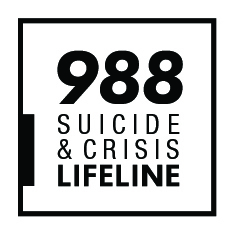Mental Health Matters: May is Mental Health Awareness Month
Every year in May, communities across the country rally together to recognize Mental Health Awareness Month. It’s a time to highlight what individuals can do to prioritize their mental health, build resiliency in the face of trauma and obstacles, support those who are struggling, and work towards a path of recovery.
Mental illness indirectly affects all of us at some time in our lives through family members, friends or colleagues. In fact, mental illnesses are among the most common health conditions in the United States, according to the Centers for Disease Control and Prevention. Statistics show that one in five Americans will experience a mental illness in a given year; More than 50 percent of Americans will be diagnosed with a mental illness or disorder at some point in their lifetime; One in five children will experience a mental illness; One in 25 Americans live with a serious mental illness such as schizophrenia, bipolar disorder and major depression. Those serious mental illnesses are the third most common cause of hospitalizations in the United States for adults aged 18 to 44. Suicide, which is often associated with symptoms of mental illness, is the tenth leading cause of death in the U.S. and the second leading cause of death amount people aged 15 to 34.
While everyone faces challenges in life that can impact their mental health, the good news is there are practical tools that everyone can use to improve their mental health and increase resiliency. One of the easiest tools anyone can use is taking a mental health screening at mhascreening.org. It’s a quick, free and private way for people to assess their health and recognize signs of mental health symptoms. You may also call West Michigan Community Mental Health’s 24-hour crisis hotline at 1-800-992-2061 to speak to a trained and caring mental health professional.
It’s equally important to build your own set of tools to boost the mental health and general wellness of you and your loved ones. This may include recognizing and owning your feelings, connecting with others, eliminating toxic influences, creating healthy routines, and supporting others.
When it comes to your feelings, it can be easy to get caught up in your emotions as you’re feeling them. Most people don’t think about what emotions they are dealing with but taking the time to really identify what you’re feeling can help you to better cope with challenging situations. It’s ok to give yourself permission to feel. We also know that life can throw us curveballs – and at some point in our lives we will all experience loss. It may be the end of a relationship, being let go from a job, losing a home, or the death of a loved one. It is natural to go through a grieving process. By looking for opportunity in adversity or finding ways to remember the good things about who or what we’ve lost, we can help ourselves to recover mentally and emotionally.
It also is true that connections and the people around us can help our overall mental health – or hurt it. It’s important to make connections with other people that help enrich our lives and get us through tough times, but it’s equally important to recognize when certain people and situations in life can trigger us to feel bad or engage in destructive behaviors. Identifying the toxic influences in our lives and taking steps to create a new life without them can improve mental and physical health over time. And we know that work, paying bills, cleaning, getting enough sleep, and taking care of children are just some of the things we do each day – and it is easy to be overwhelmed. By creating routines, we can organize our days in such a way that taking care of tasks and ourselves becomes a pattern that makes it easier to get things done without having to think hard about them.
For each of us, the tools we use to keep us mentally healthy will be unique. But West Michigan Community Mental Health wants everyone to know that mental illnesses are real, and recovery is possible. Finding what work for you may not be easy but can be achieved by gradually making small changes and building on those successes. By developing your own tools, it is possible to find balance between work and play, the ups and downs of life, and physical health and mental health – and set yourself on the path to recovery.
During Mental Health Awareness Month, West Michigan Community Mental Health also reminds everyone of their responsibility to help promote awareness and reduce stigma associated with mental illness, developmental disabilities and substance use disorders. Stigma creates one of the primary barriers to individuals seeking needed services. We need to create a community where everyone feels comfortable reaching out for the support they deserve.
 or
or 